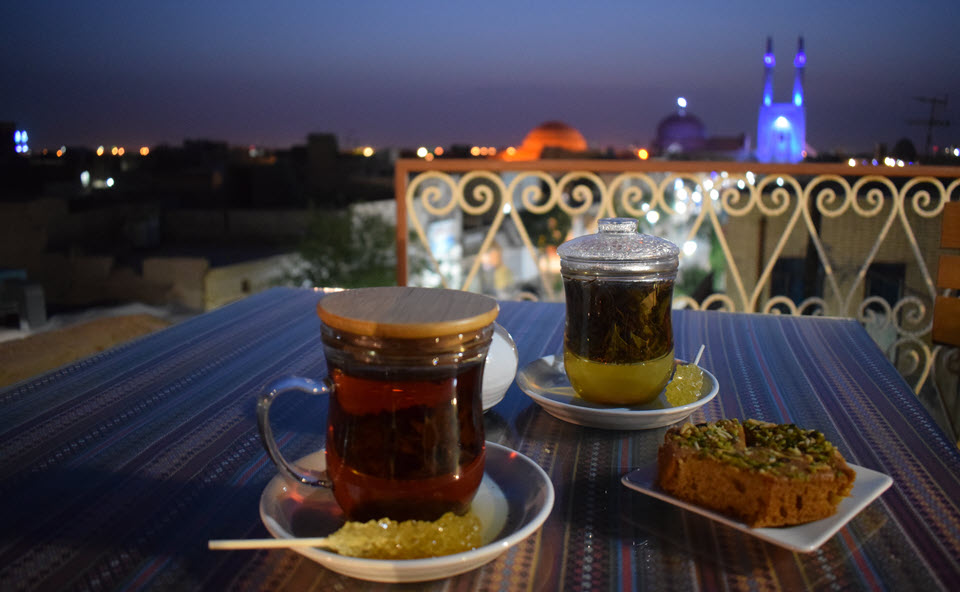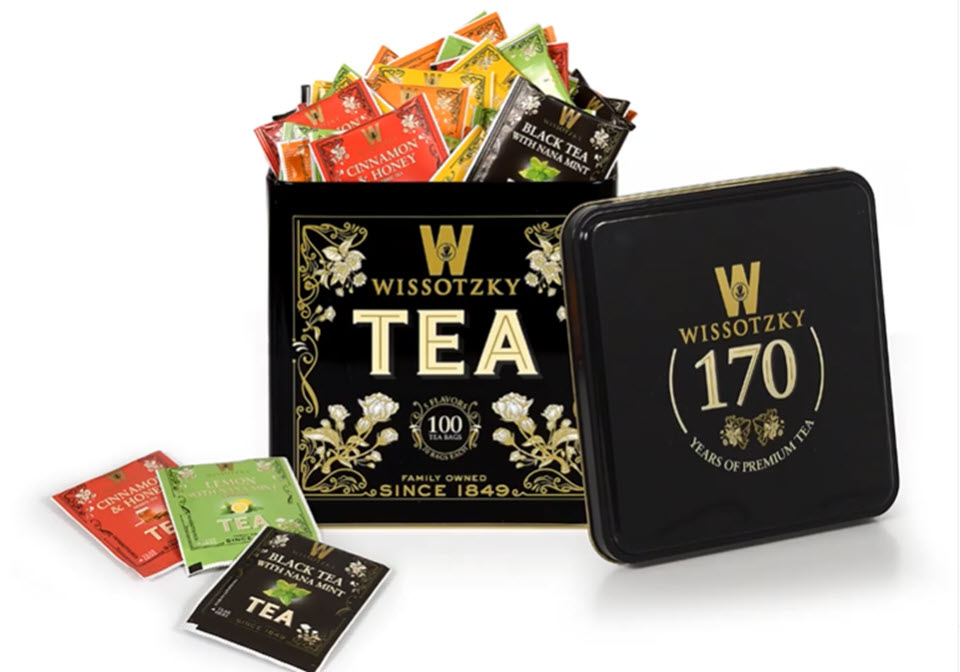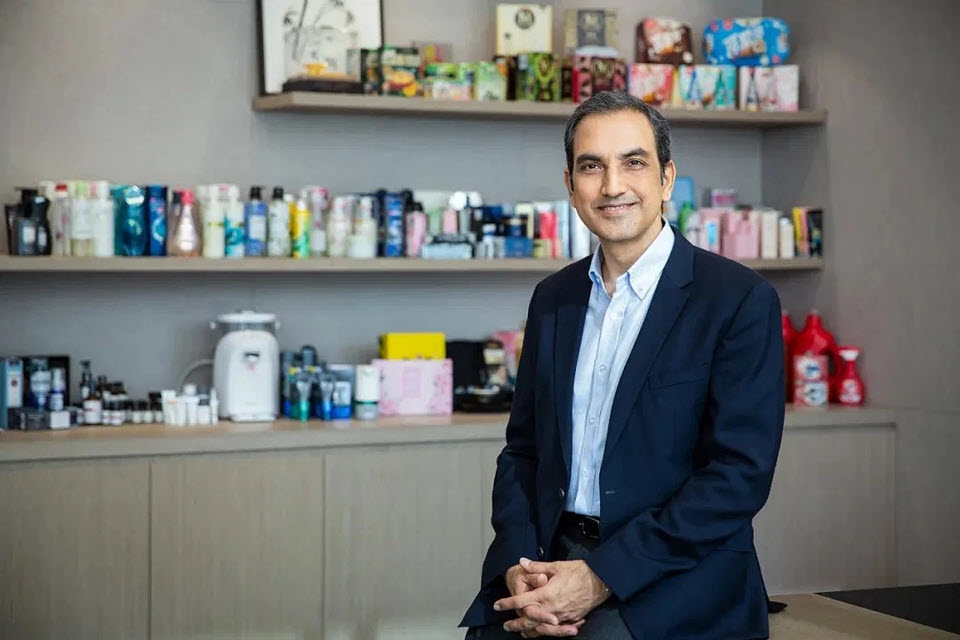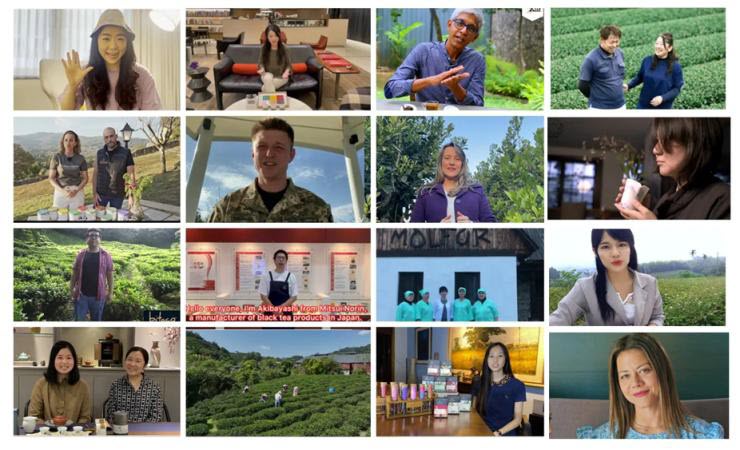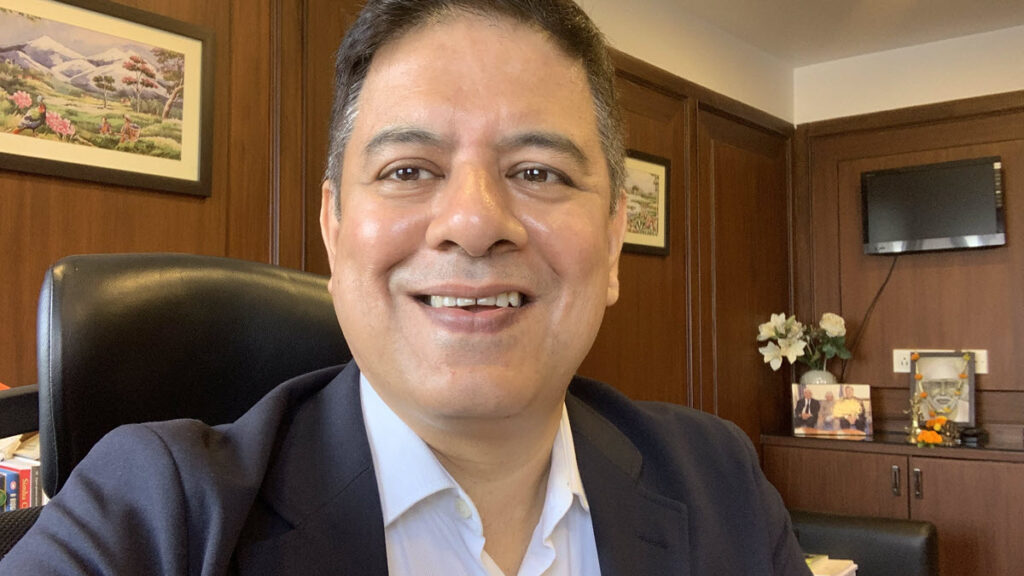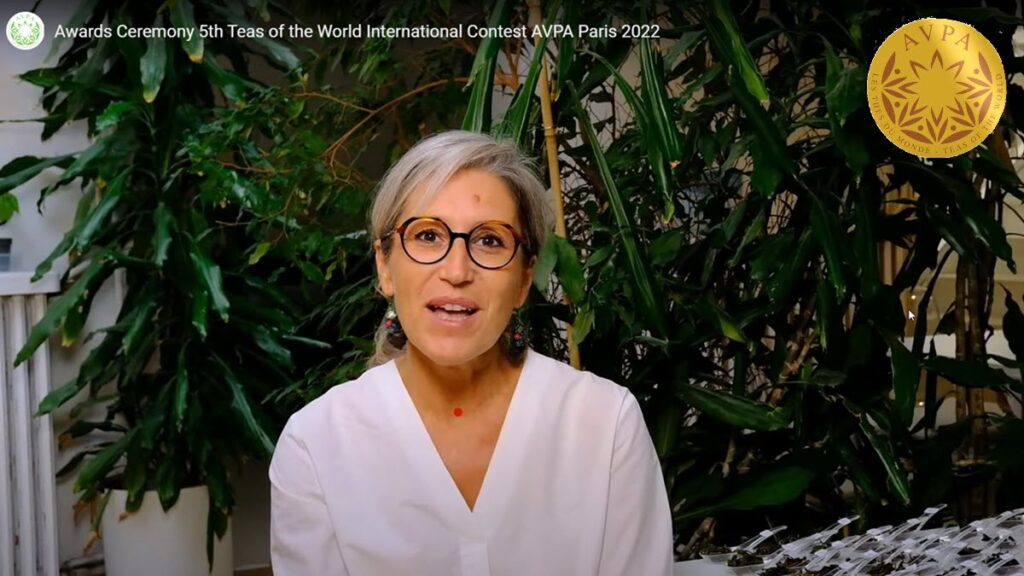AVPA is a non-governmental, non-profit organization mainly composed of producers and taste enthusiasts. AVPA’s annual Teas of the World Contest offers more value than a medal. AVPA services include tasting workshops, technical support, and distributor staff training. During the past six years, the organization has elevated the status of tea and herbal producers, large and small, not only on the global stage but in their local markets. Teas must be traceable from origin and cannot be chemically flavored. A technical jury of professionals evaluates the teas, followed by a gastronomic jury of enthusiasts that mirror consumer preferences. The deadline to enter is Aug. 31, 2023. Register at AVPA.FR
- Caption: Judges evaluate competitors for the gastronomic qualities consumers most enjoy
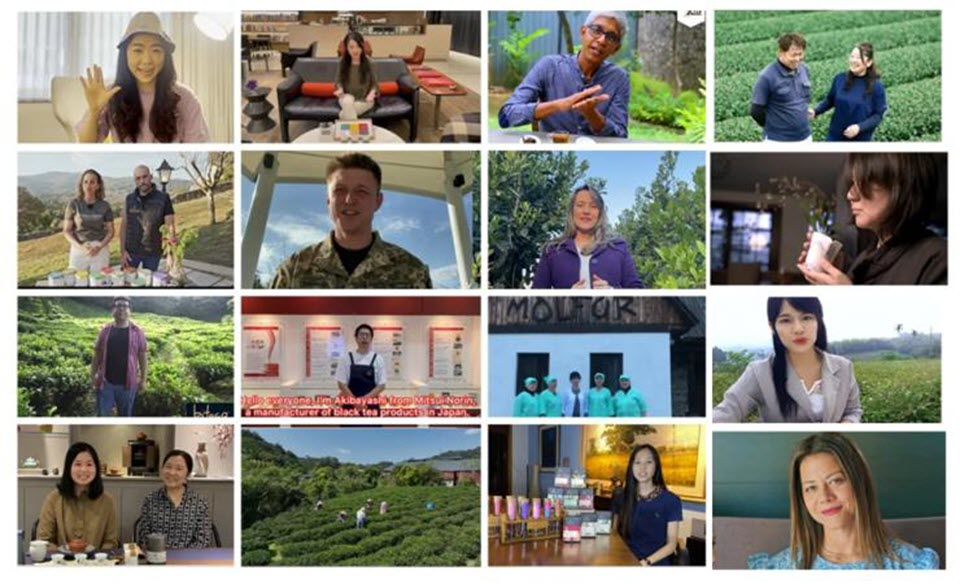
Sixth Edition Seeks to Elevate Less Well-Known Tea Lands
By Dan Bolton
Dan Bolton: Thank you so much for joining us on this week’s podcast.
Ksenia Hleap: Thank you for inviting me.
Dan: Will you describe the organization’s overall mission? Then, we’ll talk more specifically about tea and infusion plants.
Ksenia: AVPA (Agence pour la Valorisation des Produits Agricoles) is an agency for the Valorisation of Agricultural Products, and we have existed for 20 years. We first organized international contests for olive oils and other edible oils. The second contest was coffee roasted at origin. The third contest is Teas of the World. The youngest contest is for chocolates processed at origin. We are doing all these to valorize the producers in producing countries.
Dan: What’s new this year?
Ksenia: This year’s big difference from last year is that the registration form is 100 percent online. If entrants meet with any problems with the registration online, please get in touch with us. So if some producers have problems, they can call us, and we will help.
Over the last five years, there’s been a steady increase in how many producers entered the competition. Last year, we had more than 300 participants, 33% more than the previous year.
Dan: I noticed that the representation is also broader. Different regions are appearing, and you’ve succeeded in inviting more of the 43 countries that produce tea into the competition.
Ksenia: This year was very rich in possibilities for us. And for some AVPA members to visit the producing countries. For example, our president, Phillips Juglar, in May, traveled to China, where he met many producers, with the possibility of explaining the objective of our contest. In parallel, our tea contest president, Carine Baudry, visited many tea-producing countries. We hope countries like Vietnam and India will join with more producers this year. One of our Jury members also represented AVPA at the tea symposium in Taiwan.
Ksenia: We are in contact with all producing countries for monovarietal teas, infusion blends, and herbal teas. The difficulties sometimes are just the way of communication because we contact the tea boards in every country. Unfortunately, not all tea boards respond. We are also contacting the associations and tea cooperatives. So, it depends on the countries and their desire to promote tea producers.
Dan: When you look at the competition over the last few years, there have been many good quality teas. What do the winners have in common? What things typically mark the teas as exceptional, and maybe some insights into the people who are entering the competition and are successful?
Ksenia: All our participants are already winners because they dare to register for the contest and send their products. Unfortunately, not all of them are winners this year, but they will probably be next or another because they are doing a very great job. They are putting their hearts and their time into what they are doing. The product recognition in Paris, in the capital of gastronomy, gives them a big possibility to communicate about this, to showcase put the logo of the medal on their packaging, and to promote their tea or their products all over the world but first of all in their local market because this is an international recognition.
Some of them are doing great work. For example, one of our Taiwan winners decided to make a collaboration with a winning chocolate producer. The chocolate with black tea taste also won a gold medal.
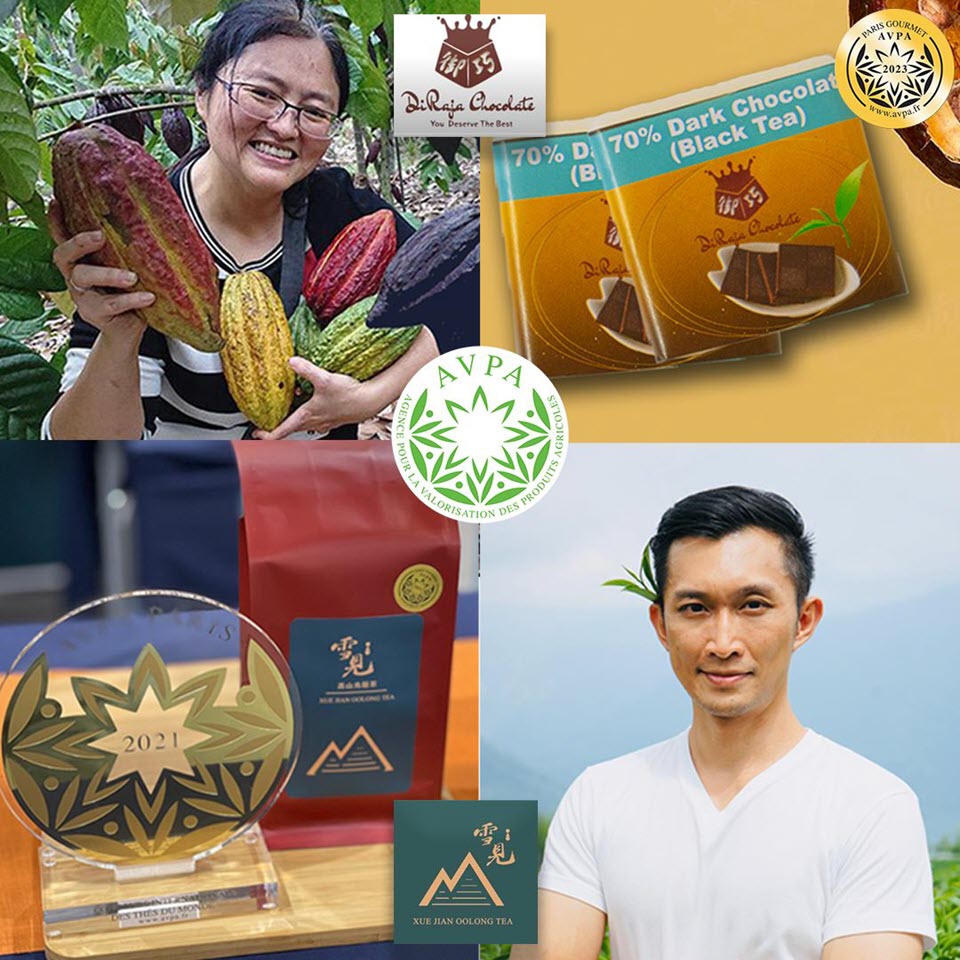
Ksenia: Tea producer Li Hsin Chang’s Xue Jian brand shared the winning experience of participating in the AVPA tea contest since 2018 and introduced the new chocolate contest to DiRaja, who participated and won the bronze in 2020. In 2023, together, they created a New taste of chocolate with black tea, and DiRaja won the Golden Medal.
See: More than a Medal
Dan: That’s a wonderful story of how elevating one category complemented the other category, and it enabled two artists and producers to succeed in something they probably wouldn’t have done unless you had introduced them.
Ksenia: Yes, we are very proud of success stories like this. It is remarkable when initially only one producer from a country returns with a medal and communicates with the local or international press. And so his neighbors and friends see what he’s doing and ask, why not me? Why shouldn’t I try to do this? So, they are also sending their products, first of all, to compare themselves with others and to have the possibility to understand where they are in this market and what they need to improve because, after the contest, they have the feedback from our jury.
Dan: That’s important, too, right? Because everyone’s vision is to improve their product from year to year. In a competition, you can compare yourself to others and advance more readily because you can detect strengths and flaws in products, including your own.
Dan: Tell us more about the herbal (infusion plant) competition. There’s a monoculture category for Camellia sinensis. But there’s an equally important parallel competition in which you judge the best herbal infusions and tisanes. These include blends scented blends with and without added flavors.
Ksenia: Yes, this is the second part of our contest. All the producers of herbal teas are welcome to participate. There are categories for herbal teas and blends with the base of green, black, or other teas. There is a big demand for this kind of tea in Europe now. This part of the contest helps the producer to understand that herbal teas are not only for their health. There is a great philosophy about taste. Two AVPA Juries give an opinion representative of “French” culture and taste. With the different herbal teas, you can create a great product for your dinner and not only have health benefits.
Dan: Not just a medicinal, traditional use, but one that involves refreshment beverage occasions in restaurants and at home. Name a couple of popular herbal infusions. So, what are some new infusions that are coming to market?
Ksenia: It’s not new, but it’s very trendy. It’s Yerba Mate from Brazil and Argentina. Rooibos also started to have his place in the market. There are many others, like hibiscus, vervain, linden, etc. All herbal tea and the creation from plants and fruits are kindly welcome to participate in our Contes. We have coffee and cacao cascara.
Dan: Malotira (Cretan Mountain Tea) won a gold medal in 2021. Yerba Mate is growing in popularity in the Middle East. Because of its versatility, South African Rooibos is a world leader in the refreshment beverage category. Rooibos, which does not contain caffeine, is often blended with many of the same inclusions in tea blends. Will you share a closing word of advice on the gastronomic aspects of tea?
Ksenia: Take a fresh tea if you are hot in your place and take a hot one when you’re cold. You have so many fabulous countries of origin for tea, so don’t hesitate to taste the different ones.
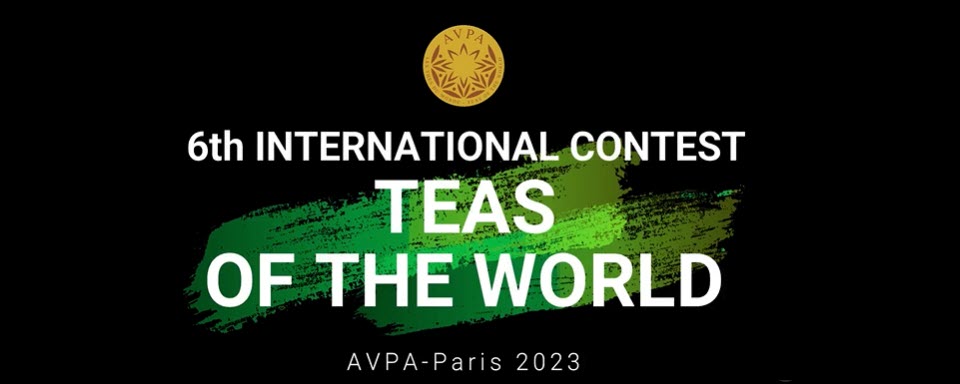
AVPA Registration Deadline
Click to Register Monovarietals | Infusions & Blends
Submit registration forms and samples before Aug 31.
2022 Winners – Monovarietal Teas
2022 Winners – Infusions, blends and scented teas
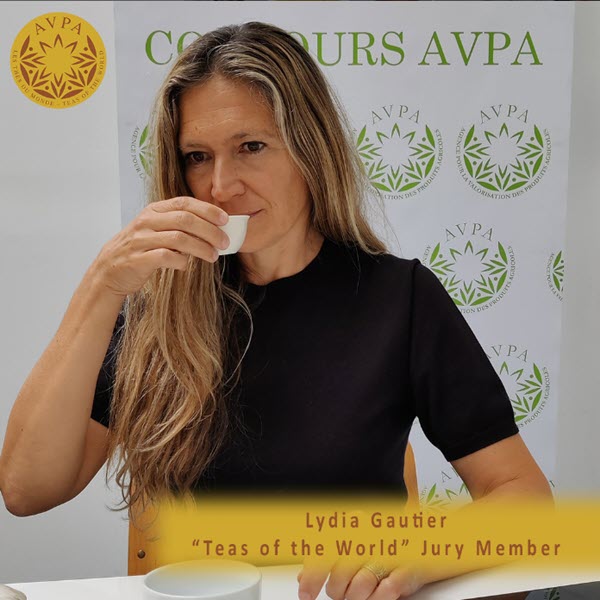
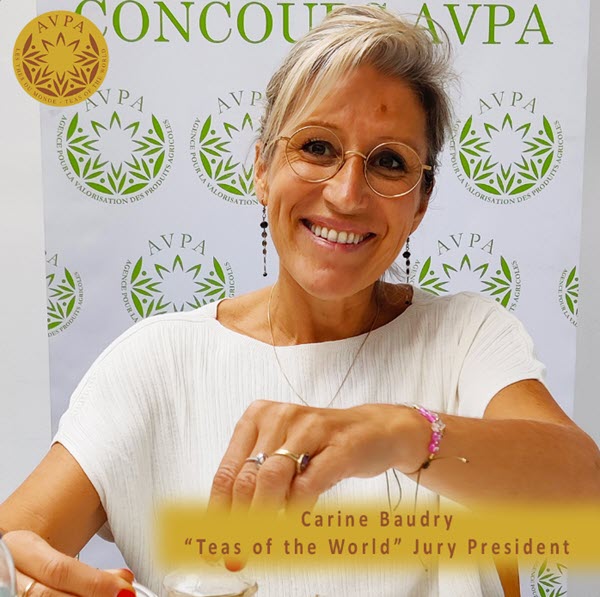
“All our participants are already winners because they dare to register for the contest and send their products.”
– Ksenia Hleap
Click to share this post with your colleagues
Signup to receive Tea Biz weekly newsletter in your inbox.


